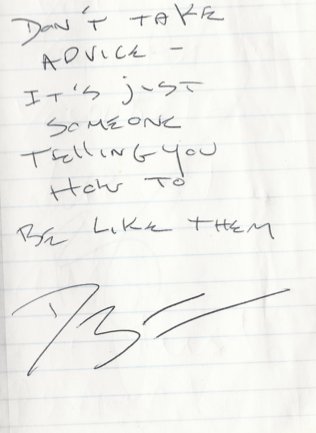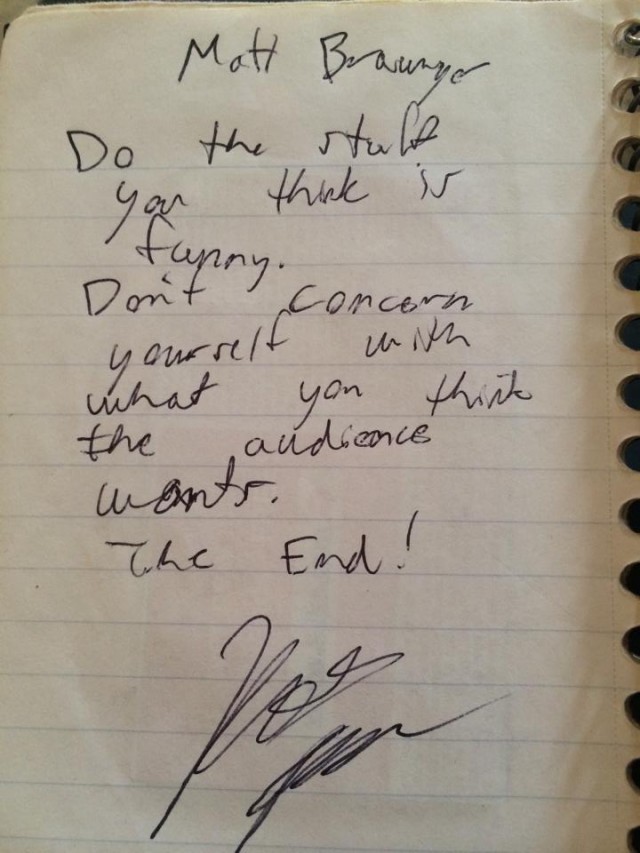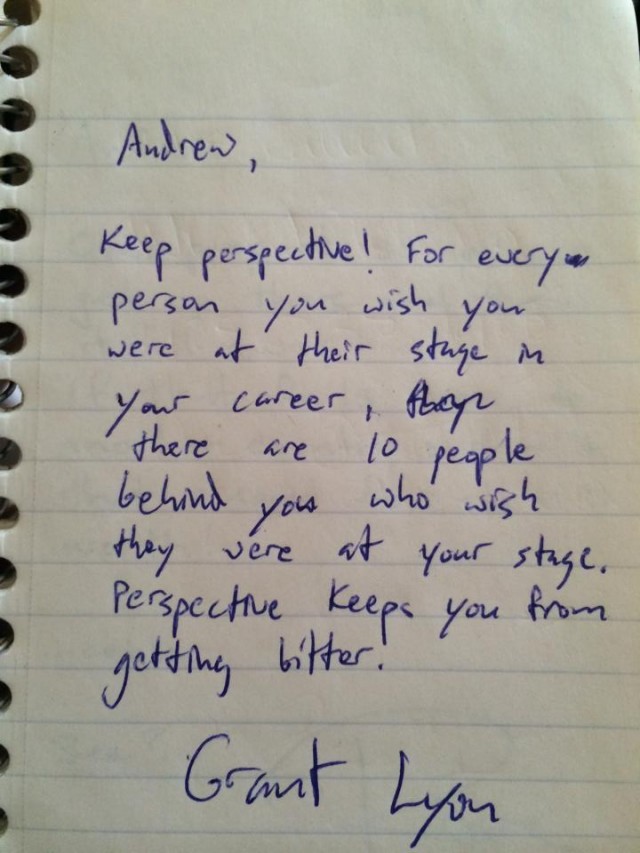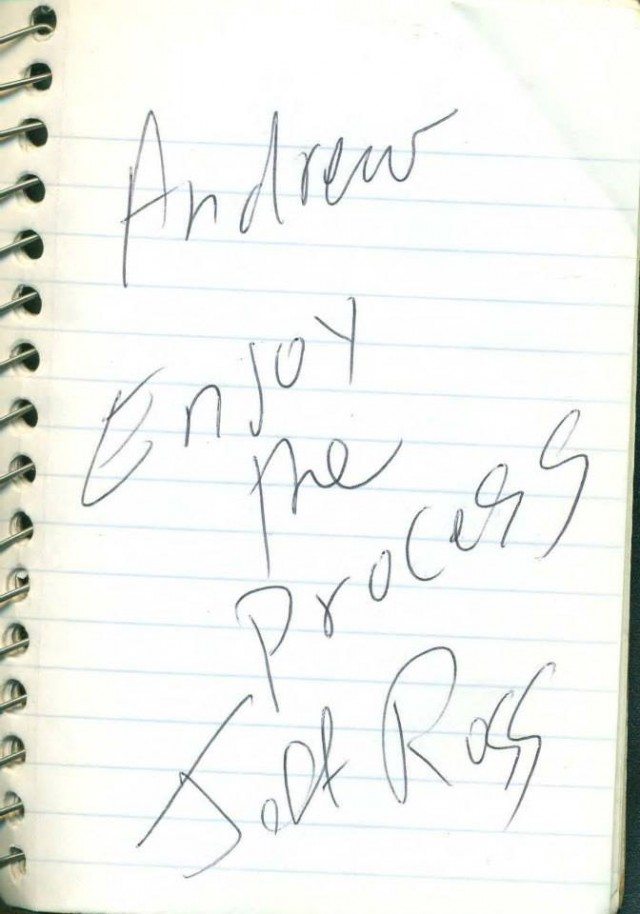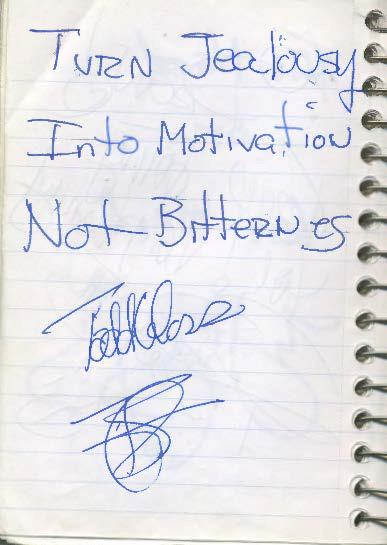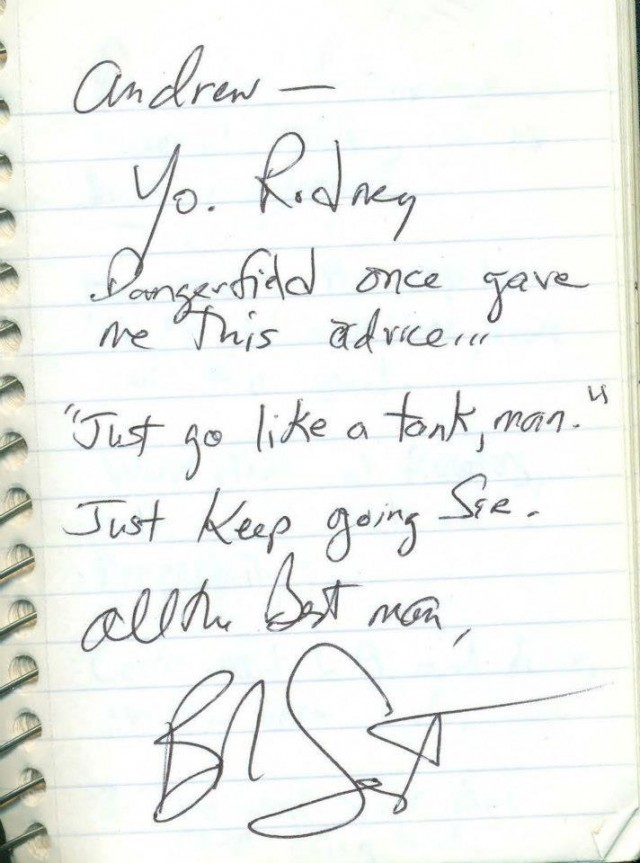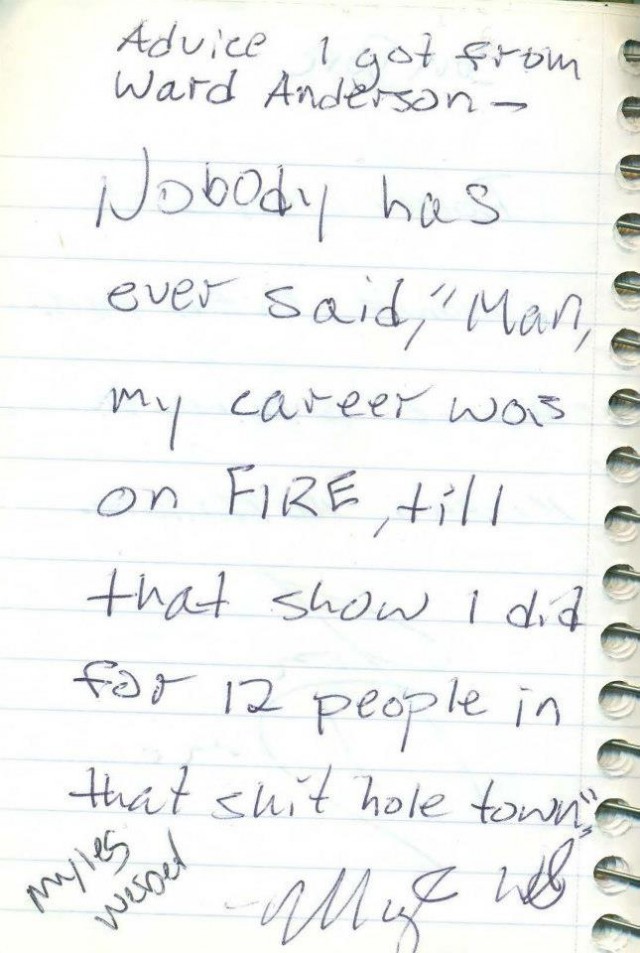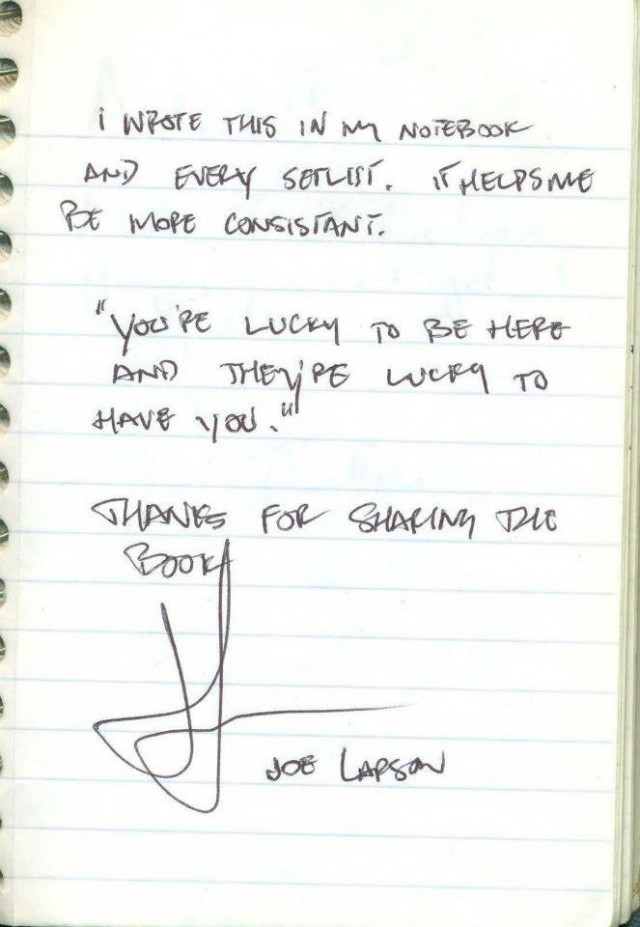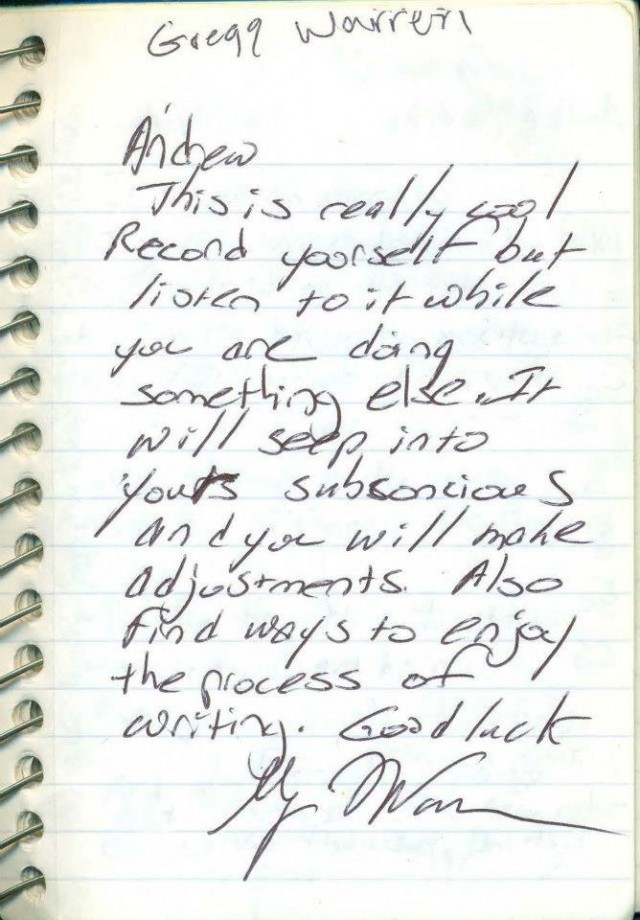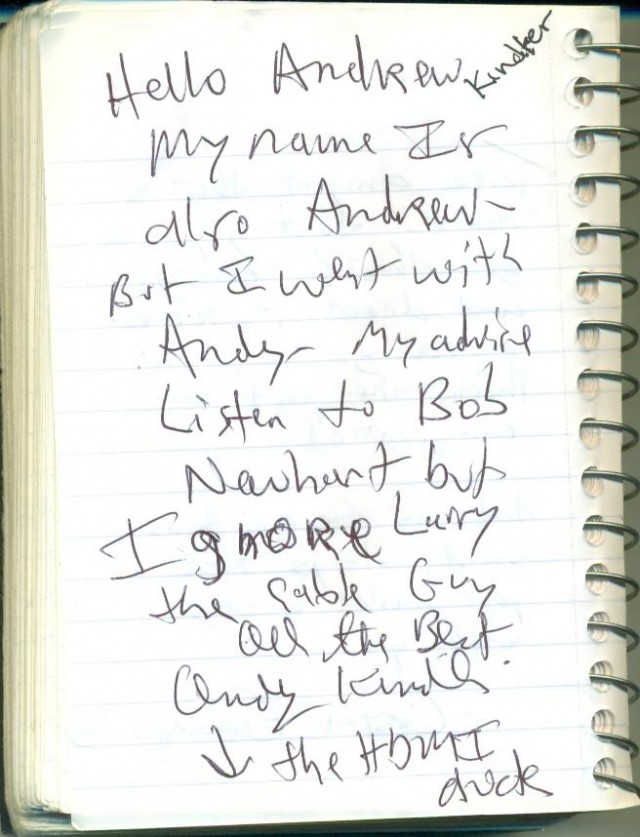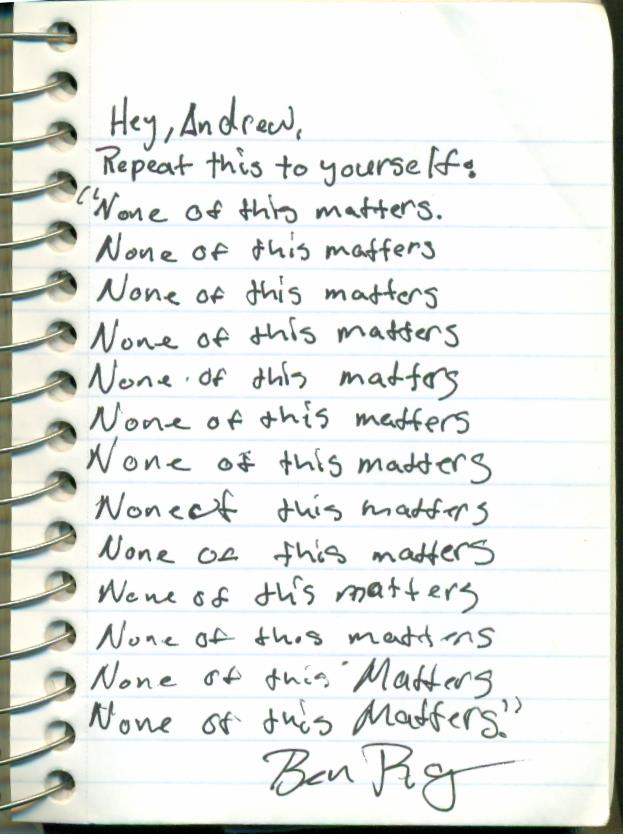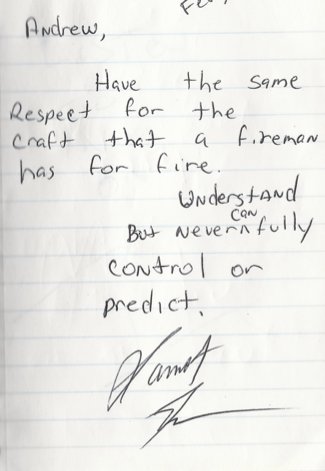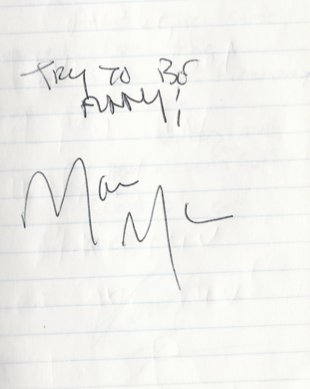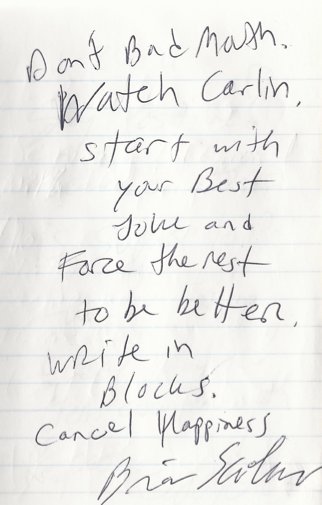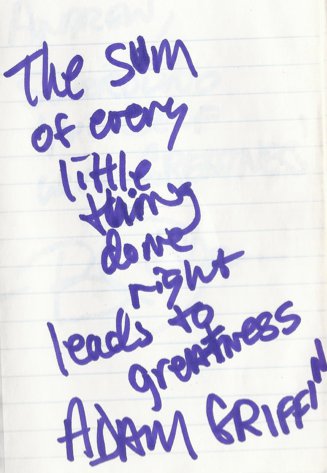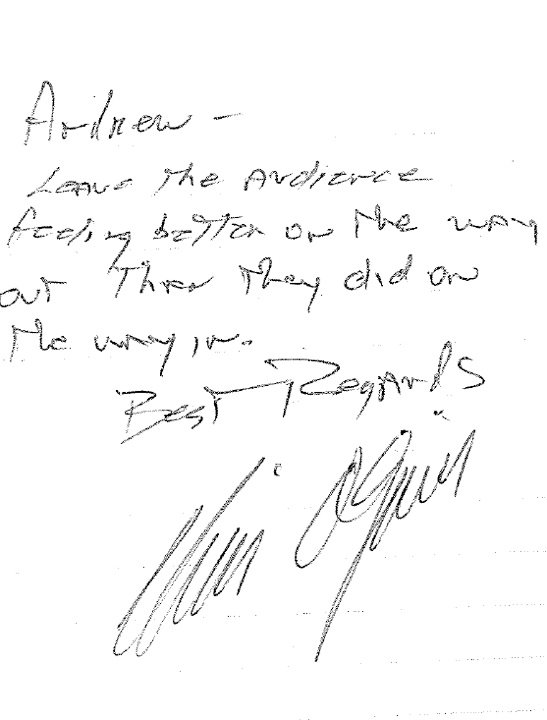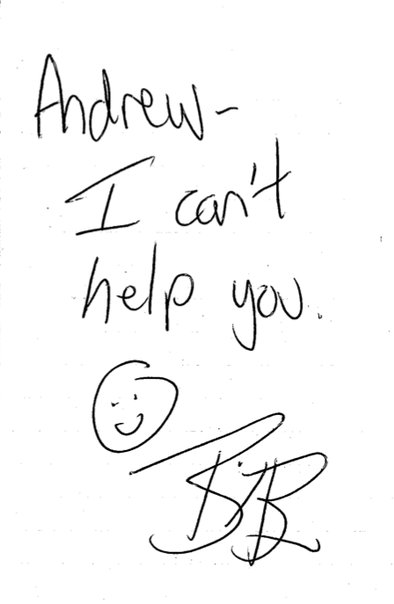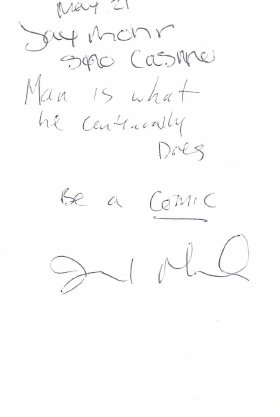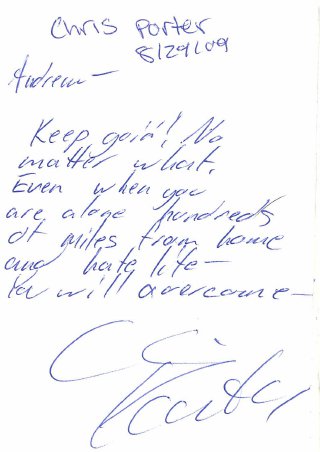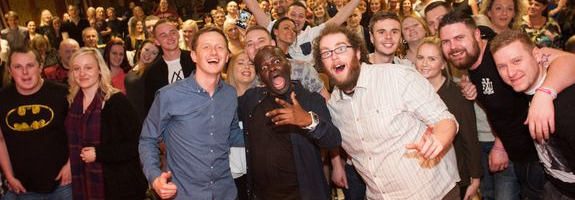You better get used to starting things.
If you’re going to have a long and (hopefully) successful comedy career, you will start all kinds of projects over the years. From the first time you step on an open mic stage, to the development of new material, to launching a website/podcast/web series, to writing a script, to any of another million things you may be inspired to create.
But no matter what your specific project is, there are a few questions to consider when you get started that can help you succeed.
I recently started a new project of my own – a website called A Person You Should Know where I profile one creative and inspiring person each day who I think you should know (thus the name). So, I thought I’d share with you not only five questions to ask yourself about your next project, but also how I answered these questions for my own.
1. How Much Time And Effort Will You Commit To The Project?
I assume if you start a new project you at least have some idea of your goal for the project (if not, you’ve got a bigger problem), so I’ll jump right to this question.
When you start something new, it’s important to consider how much time you are able to commit to developing the project and, equally important, how much you can realistically get done with the time you have available.
There’s no right or wrong answer to this question and you can (and likely will) spend more time than the minimum commitment you make to your project up front, but it’s important to think through what it will take to get the project going and to shape it in a way that fits your available time frame.
For example, it takes a lot of time to write a screenplay so if you only have an hour a week to commit to working on it, your goal of completing a script in a month is probably not going to happen. It doesn’t mean you have to abandon your screenplay project, it just means you should reassess your time frame. If you can commit to work on it an hour a week, then maybe your goal should be to complete the screenplay in a year for example.
Being honest with yourself about your realistic time commitment is also important when you create a project that makes a promise to your audience. If you can’t commit the time to do a weekly web series, then don’t launch one – make it monthly instead.
Nothing will sink your project quicker than making promises you can’t fulfill – and it’s also a recipe for driving you to quit the project before it has a real chance to succeed.
How I Answered This Question:
In launching my site, I decided I was able to find time to feature a new person once a day, Monday through Friday. This would give me enough time to work ahead and schedule posts and give me the weekends to get most of the following week’s posts done.
It seemed feasible, while at the same time ensuring a steady stream of content and making a promise that the site’s audience could connect with. It’s simple, and people know exactly what they’re going to get – one new person every day.
2. What Is Your Key Success Metric?
No matter what kind of project you launch, you’ll have a lot of different metrics that seem important to you – everything from laughs, to likes, to shares, to subscriptions.
But it’s worth choosing a single most important metric to use as a gauge of the project’s progress. Which metric you choose depends on what you’re doing and what your goals are, but figuring out which metric is most important to you will help you succeed because it allows you to let that metric guide the various decisions you make as you develop your project.
For example, if you decide the key success metric for your blog is to get readers to share your posts, then you’ll want to structure your blog and your blog’s content in a way that leads to more sharing.
If your podcast’s key success metric is your number of subscribers, then you might want to focus on strategies to get more people to subscribe once they listen as opposed to just driving downloads of individual episodes.
How I Answered This Question:
My key success metric for A Person You Should Know is the number of email subscribers I get to the site’s email list, which sends a daily email with each day’s post.
I chose this because it reflects my goal – a direct connection to people who are interested in the content I post on the site.
If somebody signs up to get a daily email from me with that day’s post (and they stick around and don’t unsubscribe), then that speaks volumes about the “success” of the content I post. It also establishes a connection I have to them which can be useful down the road if I ever decide to monetize the site in some way.
While I care about the amount of raw traffic I get to the site, that’s not as important to me as the number of people that subscribe to the email list. That traffic will fluctuate as some posts get passed around, but those email subscribers will be constant – they are the “true fans” of the site and the core audience I’m building and care most about.
Using email subscribers as a key metric is also helpful because it allows me to judge the progress of the site. If lots of people visit the site but don’t subscribe, then I’ve got a problem with the site content.
If they subscribe but then unsubscribe, it tells me I’m not delivering enough to meet their expectations.
A good success metric not only helps you judge progress, but it also helps you identify what’s NOT working. And that can be even more valuable.
3. What Do You Want People To Do When They Discover Your Project?
This question directly relates to your answer to the previous question. You want to optimize your project to give you the best possible chance to achieve your key success metric.
For example, if the key success metric for your podcast is to gain subscribers, then why are you promoting your Twitter account in the podcast more than you ask people to subscribe?
If your key metric is merchandise sales at your show, then what are you doing to make it as likely as possible that people will buy your merch?
Every time a new person discoverers your project, an opportunity is created. You want to do everything possible to capitalize on that opportunity – specifically as relates to your key success metric.
Again, you may have multiple metrics of success, but you will do much better if you focus your promotional efforts around the ONE THING you most want people to do. For more on how best to do that, check out my one-action strategy.
How I Answered This Question:
Because the one thing I want people to do when they discover A Person You Should Know is to subscribe to my email list, you’ll notice the list is prominently featured throughout the site.
A plug to join the list is at the bottom of every post, there’s a subscribe button in the navigation menu, and I recently added a full page welcome screen to first-time visitors that encourages them to join the list to get inspired. [Side Note: I’m using the SumoMe Welcome Mat app to power that feature and it’s been amazing in the first couple days I’ve used it.]
I monitor all of these things and track what percentage of people who visit the site join the email list, how many subscribers are opening the emails, and how many people unsubscribe from the list because they don’t like what they’re getting (I’m happy to say that number is very low at this point).
To give you a sense of how the numbers break down, here’s where I’m at with that email list two weeks after launching the site: 2,288 people have visited the site, 153 people have subscribed to the email list, and only two people have unsubscribed.
I’m happy with the numbers at the moment, but could they better? Maybe. I’ll find out because I have a clear key success metric that I’m tracking and can measure what happens as the site evolves and I test out new techniques to improve the results.
4. What Value Will Your Project Provide And To Who?
No matter what your project is, it won’t succeed unless it provides value to people.
So, it’s important to think about what value your project intends to provide and to whom.
Unlike focusing in on a single key success metric, it’s good to think a little broader for this question. For example, if your project is a standup show, there are a lot of different people it could potentially provide value to including the audience, the booker, the venue, and even the other comedians if you create an opportunity for them to perform as well.
If you launch a web series, that could provide value to viewers, advertisers, actors, filmmakers, your representatives, and even TV development executives at some point. A podcast could provide value to all of those as well as the guests you interview.
Understanding all the potential value your project can provide and to who helps you sort through how to present it to those various constituencies and helps you find and build an audience.
The “value” of your show will be different to the audience than it is to the venue for example, so you’ll want to present your show to those entities in different ways that speak to the value it provides to each of them.
Too often, people start projects and are so focused on the value it will provide to themselves that they miss opportunities to attract others to support the project.
An audience doesn’t care what value something provides to you – they care what value it provides to them. That should be the focus of your pitch to get them to check out what you’ve created.
How I Answered This Question:
I see a lot of audiences that can get value from A Person You Should Know including people who want to be inspired, who want to learn, and who want to become part of a creative community.
The site also provides a service in finding these interesting people and boiling their key ideas down to a very quick, skimmable read each day. If you want to learn from these people, but don’t know how to find them or have time to track them down, this site gives you an easy snapshot to learn from them without a huge commitment.
But, by also providing the links to deeper articles and speeches from each person, the site also provides value to people who want to be able to take a deeper dive with any of these people that catch their eye.
And the site provides value to the people I feature on it by exposing them to new people who may be interested in supporting their efforts.
Essentially, I’ve crafted my project in a way to appeal to multiple audiences with different value propositions. Knowing this influences everything from how I construct the site, to how I promote it, to who I target with that promotion.
5. What Can You Learn From The Initial Feedback
Your project is not going to be perfect when you launch it – far from it. But don’t worry, that’s actually a good thing.
Rather than waiting to figure out every little detail of your project before you unleash it on the world, get the bare minimum you need to launch and put it out into the world.
But the key here is to pay attention to the feedback you get on the project because you will be able to learn a lot from those first few people who experience your new creation.
Don’t overreact to a single compliment or criticism, but actively seek out and pay attention to whatever feedback you get about what you’re doing. Just like a comic will pay attention to what gets laughs on stage, you should examine things like at what point in a video your audience abandons it, or which blog posts are being shared more than others.
Also, look for opportunities to engage with your audience.
Don’t be afraid to message somebody who likes your Facebook page, thank them, and ask them why they joined and what they’re hoping to see. Don’t be afraid to tweet at people and ask them what they’d like to see incorporated into your project, or to thank them for sharing it.
You’ll be surprised what you can learn from the feedback of even just a handful of people and it can have a huge impact on your new project which is ALWAYS a work in progress.
How I Answered The Question:
I’ve been amazed at how much I’ve learned in just the first two weeks of A Person You Should Know. Things that seem obvious now, were not really part of my initial plans.
For example, I was surprised early on when a couple people who discovered the site sent me suggestions of people to feature.
I was initially so focused on my own curation of the people featured, that I didn’t realize how compelling it would be for other people to offer to suggestions. I also realized the suggestions could help form a real sense of community around the site as well as introduce me to other talented people who I might not have otherwise known.
I also hadn’t initially considered the advantages of featuring people who in addition to being talented, often had followings of their own.
Several of the people I have featured already wound up discovering my site as a result and sharing it with their audiences. There’s essentially a built-in promotional loop to the structure of the site, which I hadn’t considered in the initial concept, but seems like an obvious strength of the concept now.
Again, I learned from that and started emailing people I feature to make sure they at least are aware that they were featured – I don’t just rely on them seeing themselves tagged in a tweet.
I don’t actually ask them to share the site with their followers, but I do ask them for suggestions of other people to feature and I’ve gotten some great tips as a result. And, several of the people I’ve featured have become subscribers and helped spread the word as well.
The point is that if you keep your eyes and ears open when you launch a project, you’ll be surprised what you can learn and how that can help the project ultimately succeed.
READ THIS NEXT: Case Study: How To Launch A Short Video Series





